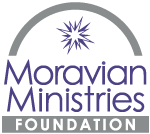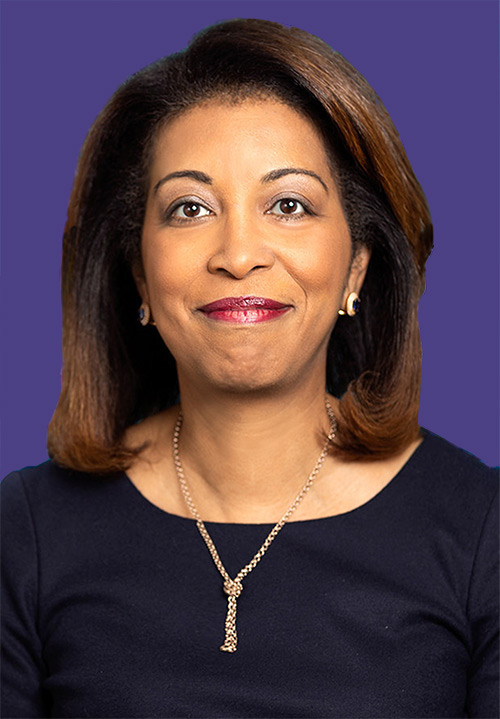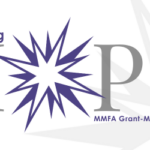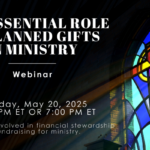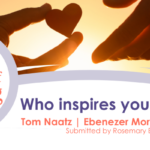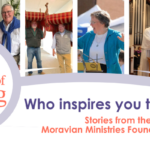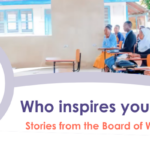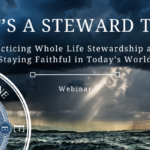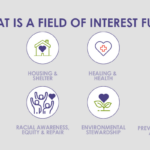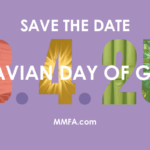By Lydian Bernhardt Extraordinary faith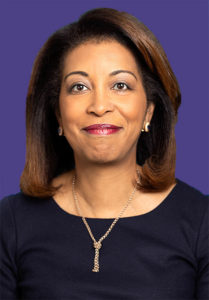
As a young child in Bluefields, Nicaragua, MĂ©lida Hodgson learned to love the simple tenets and spiritual freedom of the Moravian church.
When she moved to New York City at age 10 with her family, her fellowship with the church continued at John Hus Moravian Church in Brooklyn, where her father was a charter member.
“I was born and bred into the church, so being Moravian is cultural to me as well,” she says. “The church has a long history in Nicaragua. My parents and grandparents were Moravian, and my mother was the choir director at the Central Moravian Church and a teacher the Moravian school, which was frankly the best school in Bluefields. Even after we moved to New York, and the most common religion was probably Catholic, everyone we knew was Moravian.”
“To me, the freedom, the primary belief in the essentials, even the way that Moravians act when they go somewhere – they build a church, a school, a hospital or clinic, things that really serve the community – are, to me, the best way to be a Christian, because that reflects what Jesus wants us to be.”
Today, as a partner and head of the international arbitration New York arm of the multi-national law firm Jenner and Block, Hodgson puts the church’s spirit of reconciliation into practice in both her professional and her personal life.
In her work as a lawyer, she leads teams trained in international arbitration, a form of dispute resolution in which parties work directly to resolve disputes, avoiding litigation in court. Often, one of the parties involved in the dispute is an international company that seeks to continue a good working relationship with the country or foreign municipality in which the dispute arose.
“They don’t necessarily want to go to court because both want a way forward with their project or relationship,” she says. “That’s where arbitration is effective.”
Outside of work, Hodgson serves the church. Currently a member of the Moravian Ministries Foundation’s Board of Trustees, she has also been vice chair of the Northern Provincial and Synod of 2018 and also has served the Eastern District Synod.
“It was very moving, because it was the final discussion on the admission of gay clergy in the church,” Hodgson says. “One of the things I love about the church is that the Moravians have the flexibility to be the kind of Christian that I think Christ wanted us to be. The church has its own issues, but I think it has the built-in ability to move past them and find unity in the right thing to do.”
As the leader of legal teams in both Washington, D.C. and New York, Hodgson attends First Moravian Church in Manhattan, but is a member of Faith Moravian in Washington, D.C. She sometimes attends John Hus Moravian Church in Brooklyn. Having a centralized Giving Portal with the Moravian Ministries Foundation in America (MMFA) makes contributing to the church easier, she says.
“These funds make it easy to have one central place to put money where I want it to go,” she says. “If I had to seek out each one individually, it would take longer, be harder or would maybe never happen.
“The MMFA makes it easy to use your funds according to your personal beliefs. For example, I try to follow Jesus’s admonition to help the poor and feed the hungry, but one thing I hadn’t followed through on is His admonition to take care of prisoners. So I was happy to see the prison ministry as part of the Field of Interest Funds.”
The Field of interest Funds also opens the door to contribute to less-familiar ministries, and has been making great inroads in educating people about what’s available, she says.
All the possibilities, Hodgson says, make her a happy donor.
“A cause that’s very important to me is the Board of World Missions, because without their work, we quite possibly wouldn’t’ve have had the Moravian work that was done in Nicaragua that led to the education of people like my parents. It’s directly out of that work that I’m here today.
“I think that I am very much blessed, and that I call on God all the time. Giving through the MMFA is a way for me to acknowledge that. It’s a way for me to express my faith.”
